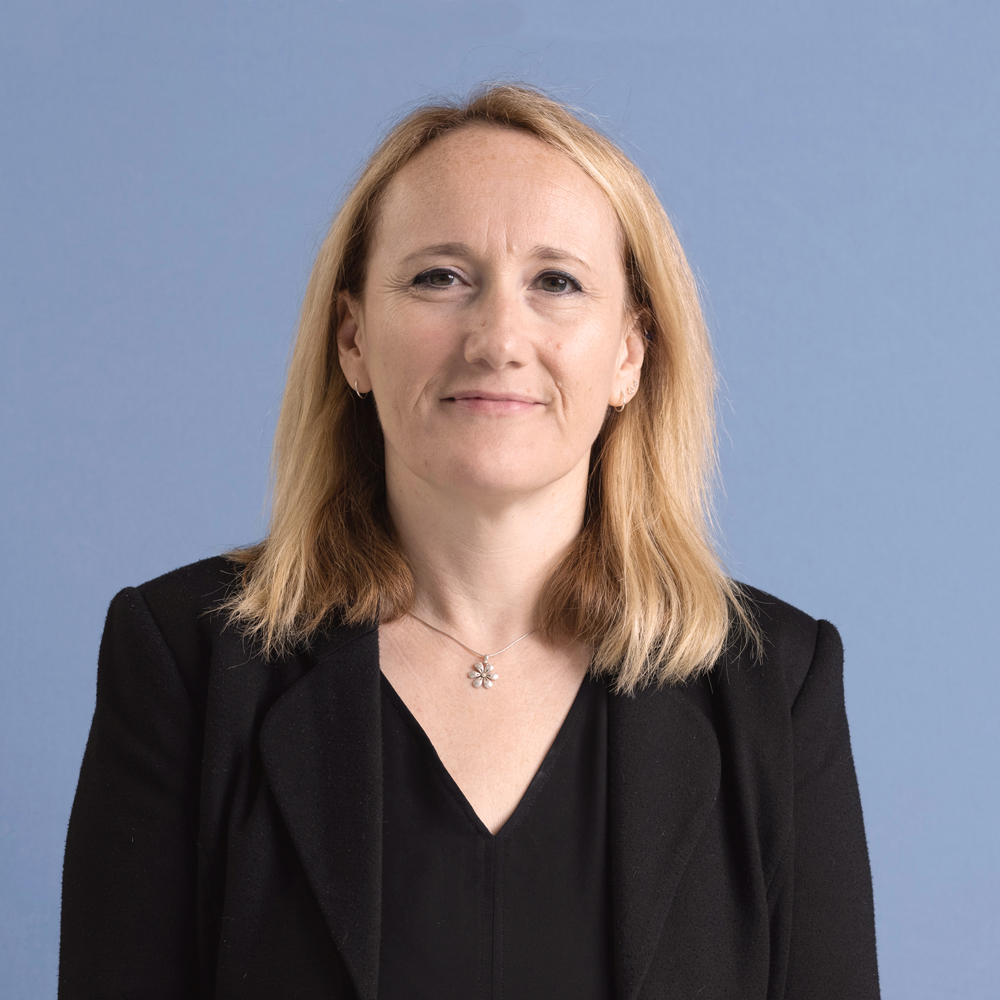
Insurance regulatory bodies face mounting challenges to keep pace and maintain robust, reliable reviews of carriers that take into account the shifting landscape around them.
In the US, the National Association of Insurance Commissioners (NAIC) has outlined its 2024 strategic priorities, which underscore the critical need for coordination and innovation in addressing these challenges.
NAIC’s strategic priorities for 2024 encompass a wide array of issues crucial to the insurance sector’s stability and resilience. From tackling climate risks and enhancing insurer financial oversight to addressing deceptive insurance marketing and promoting financial inclusion, these priorities reflect a proactive stance in safeguarding consumer interests and fostering industry integrity.
Meanwhile, in Canada the P&C sector is grappling with similar risk horizons and regulatory shifts, as well as internal policy issues such as adherence to Quebec’s French language law, Bill 96, which mandates that all policy contracts conducted with clients in the province must be in French initially.
Working with Insurance Regulators
These are just a handful of examples, but the overall message is clear. As state-based insurance regulation continues to evolve, collaboration between regulators and industry experts becomes paramount. There is growing demand for sector specialists to support regulators in auditing carriers’ performance.
Our team stands ready to assist insurance regulators in evaluating carrier behavior, performance, and customer outcomes, ensuring compliance with market requirements. With expertise spanning regulatory audits, underwriting, claims, and run-off assistance, we bolster market conduct functions and provide invaluable support to regulatory bodies.
Benefits of Collaboration
By partnering with our team, regulators gain confidence in protecting consumers while strengthening market conduct functions. Our experts augment regulatory staff, offering tailored solutions to meet evolving regulatory standards. Through collaborative efforts, we ensure industry participants uphold regulatory requirements, fostering trust and integrity within the insurance ecosystem.
Extensive experience is required to work closely and effectively with insurance regulators, conducting detailed reviews of carriers to uphold regulatory standards. By leveraging our expertise, regulators can effectively fulfill their mandate of safeguarding consumers and maintaining market integrity in an ever-changing regulatory landscape. Together, we pave the way for a more resilient and consumer-centric insurance industry.

Name: Robert Sherman
Job title: US Head of Audit & Advisory
To speak to the Pro Global team please feel free to reach out to us at:

To contact our PR team directly please use the link below

This article is shared with the kind permission of Canadian Underwriter. Original article here
Insurance providers “should have an overlaying company policy saying, ‘Here is how we, as an MGA or insurer, etc., are handling production of all of our insurance policies with respect to Bill 96,’” said Elaine Collier, senior auditor at Pro Global, which conducts Lloyd’s audits of Canadian and U.S. coverholders. “They should have something they ensure all staff are aware of as part of their training: ‘This is what you need to do.’”
Under Bill 96, passed in 2022, businesses offering goods or services in Quebec must inform and serve their Quebec clientele in French first. “This principle is now an express obligation which, if contravened, is an offence punishable by fines,” as Stikeman Elliott notes on its website.
It’s unclear how Quebec’s government and courts will interpret the scope of the law’s application. For example, ambiguity exists around whether the law’s reach will extend to insurance providers with offices both inside and outside Quebec.
“If, for example, the insured and the main risk is located and domiciled in Ontario but there may be secondary locations in Quebec, I think a case could be made that you could issue everything in English,” Collier says. “But if there is some variation on that, it might be better to default to issuing a separate policy in French for Quebec locations.
“I think [the company policy is] something each entity has to decide for themselves.”
Whatever the corporate policy, insurance providers must make sure front-line staff who serve the clients know how to issue documents in proper accordance with the provisions of Bill 96.
“It’s not just a discussion for the higher-ups — the lawyers and presidents,” Collier told Canadian Underwriter in an interview. “It filters right down to the front-line…It’s a training issue as much as anything else.”
Insurance providers serving customers and clients in Quebec should be prepared to prove they issued a French version of the policy documents to the consumer first, before the customer provides express consent to receive English copies of policy documents.
“Section 55 [of Bill 96] clarifies that the French version of the agreement must have “been given to the other party” and that [the consumer] must have ‘explicitly expressed willingness’ to conclude an English version of the agreement,” as the law firm Gowling WLG notes on its website.
Keeping track of this may be complicated, as Collier observes.
“If our English [clients] want [their policies] in English, they have to make a formal request to have it in English,” Collier says. “And [insurance providers] need to adequately document their files, which is often poorly done. In some of my audits prior to Bill 96, there’s nothing clearly retained in an underwriting file that tells me the client said, ‘Yes, I would like my policy in English.”
Issuing renewal policies will also be complicated, Collier adds. For example, if the policy was first issued in French, and the consumer at that point confirms a preference to receive further documents in English, can the renewal policies be issued in English? Or must they be delivered in French first?
Insurance providers “need to have a renewal strategy so that any policies outside of the envelope [of the law] are [translated into French] in a certain amount of time,” Collier says. “All renewals have to be done in a different light…
“This is an area where probably not enough attention is being paid, but more attention should be paid. Do [insurance providers] just issue renewable [French] declarations and they don’t provide [French] copies of the wordings? That’s a risk factor there.”
Translating English insurance policies to French is not as easy as it sounds, for several reasons. For example, Collier’s seen examples of French and English sections contained in a single insurance policy document.
“How do we deal with all of these policies we have that are…what I call ‘moitié-moitié,’ which is half and half?” she asks. “You might get a dec page that’s French and a Lloyd’s endorsement in English, and then another endorsement that’s in French. Some of them can be messy.
“How are they going to deal with that legally? Because there’s still some discussion about the legislation and there’s also been no testing of this new legislation in the courts.”
Plus, translating documents is a nuanced art that includes technical industry jargon. Ambiguity exists around specialty or manuscript wordings that have no Quebec equivalent, and/or have not been tested in the Quebec courts under the Civil Code.

Name: Elaine Collier
Job title: Senior Auditor (Canada)
To speak to the Pro Global team please feel free to reach out to us at:

To contact our PR team directly please use the link below

2023 saw a record number of 20+ MGAs incubated in Europe through Pro MGA, and for 2024 we are already working on a double digit number of opportunities and we are expecting forecasted premiums of EUR 100m+ across our supported MGAs by year end. It’s clear that Pro MGA’s commitment to innovation and industry expertise is empowering MGAs to drive meaningful change within the insurance industry.
For decades, MGAs have been a stalwart presence in the insurance industry. However, unlike previous cycles where MGAs struggled amidst market instability, they are now not just surviving but thriving as valuable extensions of insurer underwriting capability, connecting innovative and relevant new products with local markets.
We feel 2024 has the hallmarks of a milestone year of expansion for MGAs in Europe. So, what’s turbo-charging this growth drive?
Traditional year-by-year arrangements are being replaced by multi-year contracts, fostering greater alignment and stability. This move towards long-term partnerships incentivises both parties to focus on sustained profitability and mutual growth, rather than short-term gains.
MGAs are also increasingly aligning with panels of insurers to explore capacity options. These alliances allow MGAs to access a diverse range of underwriting capacities, enabling them to offer comprehensive coverage across various lines of business while mitigating risk. By collaborating with multiple insurers, MGAs can maintain their independence while ensuring a secure and well-backed operation. Some MGAs have successfully secured non-classical risk capital by securing alternative risk capital from for example pension funds/trusts, looking to diversify their investment portfolios.
This model is not only enhancing the resilience of MGAs but also fostering competition among insurers, driving greater efficiency and innovation in the market.
Moreover, the increase in profit commissions, coupled with delayed earnings accrual, strengthens the financial performance of MGAs over time. By prioritising long-term relationships, insurers and MGAs are cultivating partnerships of trust that foster entrepreneurialism, and support the sustainable navigation of market fluctuations, laying the groundwork for enduring success.
Meanwhile, the investment landscape surrounding MGAs reflects both challenges and opportunities. While securing investment remains a hurdle in the current volatile investment environment, the attractiveness of proven MGAs as investment targets persists despite market uncertainties.
2023 saw a cooling-off period in the broader M&A market, but this is expected to turn around in 2024, and the MGA sector in particular remains active. MGAs with a track record of successful growth are fetching attractive multiples, drawing interest from investors and traditional insurers alike. Limited targets and heightened competition underscore the lucrative nature of MGA investments.
This competitive environment highlights the strategic importance of M&A activity within the MGA space and as part of an MGA’s strategic objective, as players vie to capitalise on the industry’s growth potential and secure their position in an evolving market landscape.
The most critical element to the value proposition of an MGA is of course the team behind it. MGAs are often formed by ambitious entrepreneurs who have grown frustrated with slow-moving systems at large insurers, and the space is also fostering and securing talent as start-ups grow. Talent is attracted to fast-growing, agile start-up environments, and there are many more in the market who want to be part of the MGA success stories that we are seeing. In fact, anecdotally we are seeing talent gravitate towards MGAs at a pace outperforming the general insurance space.
In particular, specialised niche underwriters are realising that their expert underwriting knowledge is highly valuable, and by joining an MGA structure that aligns with their area of expertise, they become more than a small cog in a large machine, and can drive a business forward and be rewarded for it.
The barriers to entry to start an MGA are now lower than ever before – the path is well-trodden. Enabling platforms like Pro MGA Global Solutions are keen to support high quality ideas backed by expert underwriting talent, and can take on the heavy lifting when it comes to the sometimes daunting regulatory and operational hurdles that can be overwhelming, particularly when resources are limited with start-ups.
The turbo-charged rise of European MGAs is not merely a short-lived trend but an upwards gear shift in the dynamics of the insurance industry. MGAs are poised to grow in influence in the European insurance sector, through collaborative partnerships, a strategic focus on insurer diversification and relentless pursuit of innovation.
The transition towards longer-term relationships between insurers and MGAs signifies an important maturation of the partnership model, emphasising stability, alignment, and sustained profitability over short-term gains.

Name: Hans Martin Døhlen
Job title: Managing Director, Pro MGA Solutions Europe Gmbh
To speak to the Pro Global team please feel free to reach out to us at:

To contact our PR team directly please use the link below
"We're committed to fostering a culture where inclusivity and equality isn't just a priority, but a guiding principle. Whilst there is always more to do, we strive to embrace diversity, uphold equality, and champion inclusion for a brighter, more equitable future."
- Steve Lewis, CEO of Pro Global

London, UK: 8th March 2024: International Women’s Day is an appropriate moment to reflect on the strides we’ve made at Pro Global towards fostering diversity, equality, and inclusion within our organisation. The past year has been marked by a number of initiatives aimed at closing the gender pay gap, enhancing family-friendly policies, and championing community engagement.
In 2023, Pro Global continued its journey towards gender equality by significantly reducing the gender pay gap. Our commitment to this cause is evident in the tangible progress we’ve achieved, with the mean gap decreasing from 45% to 30% and the median dropping from 35% to 8%. While this progress is commendable, we acknowledge that our work is far from over.
One of our key focuses has been on enhancing family-friendly policies, including increasing parental leave provisions and company pay for employees. These initiatives aim to support our employees as they navigate the challenges of growing their families while maintaining their careers. Additionally, our flexible hybrid working approach ensures that our workforce can thrive both personally and professionally.
In addition to internal initiatives, we’re proud to partner with Gloucester Hartpury Women’s Rugby team, championing the sporting achievements of women in our community. This partnership reflects our commitment to supporting diversity and inclusion both within and beyond Pro Global.
Focus fuels success
Looking ahead, we remain steadfast in our commitment to advancing diversity, equality, and inclusion, both at Pro Global and in the global re/insurance industry. We will continue to review and refresh our EDI policies, deliver further training, and prioritise inclusive practices to ensure that Pro remains a great place to work for all.
As we celebrate International Women’s Day, we reaffirm our commitment to empowering women and fostering a culture of inclusion where everyone can thrive and succeed.

Name: Steve Lewis
Job title: CEO and Group Head of Claims
To speak to the Pro Global team please feel free to reach out to us at:

To contact our PR team directly please use the link below
This article is shared with the kind permission of Insurance Edge. The original article can be accessed here

“The revolution will not be televised” – that famous phrase coined by the poet and musician Gil Scott-Heron – is a powerful statement of fact: significant societal change won’t be captured or conveyed adequately through headlines (and yes, that irony is not lost on me). Instead, it implies that real change happens on the ground, among people, away from the public gaze. In the context of technology’s impact on society, this phrase is never far from my mind.
Robotic process automation (RPA) may not be in the headlines on a daily basis like its altogether buzzwordier cousin Artificial Intelligence, but its impact on society and industry – specifically our global re/insurance sector – is growing steadily. That’s because it’s not about flashy robots or sci-fi scenarios; rather, it’s the gradual integration of automation into various aspects of our jobs, and into the fabric of the systems we use to make decisions and shape strategies.
The automation revolution is subtle – driven by algorithms that operate invisibly in the digital realm. And to understand how this technology is transforming re/insurance today, we must look beyond the surface and pay attention to the deeper, often unseen forces shaping the fabric of the industry.
One of the key areas experiencing transformation is claims processing. Through new RPA algorithms, insurers can now expedite the evaluation and settlement of claims, reducing manual intervention and improving accuracy. This not only enhances customer satisfaction by providing quicker resolutions but also optimises operational costs for insurance companies by triaging the most complex claims for human attention.
Fraud detection is another critical aspect where RPA can play a pivotal role. By employing sophisticated models, insurers are analysing vast amounts of data to automate the identification of fraudulent patterns and anomalies, enabling proactive intervention and mitigation of risks. This not only safeguards the integrity of insurance systems but also protects legitimate policyholders from potential fraudulent activities.
Similarly, another current and evolving application is in auditing. By automating auditing processes, insurers can conduct comprehensive assessments with greater precision and efficiency, minimising the risk of non-compliance while optimising resource allocation.
However, as we progress into 2024, the most valuable current applications for insurers already lie in enhancing their own operational efficiency. Insurers are embracing process automation, often through expert third-party service providers, to streamline complex operations and adopt smarter workflows. Particularly, fronting carriers and programme management businesses are turning to digital tools and partnerships to overcome scalability challenges and drive business growth.
UK insurer iGO4, launched a transformational Robot Process Automation (RPA) programme with the Pro Digital Solutions team – creating 160+ bots in 12 months and automating 40% of its processes to deliver seven-figure cost savings. The approach enabled iGO4 to automate high-volume and small, infrequent tasks that would not otherwise have been financially viable, reducing regulatory risk. Employee job satisfaction is also increased by removing routine tasks and enabling the focus to switch to more complex and rewarding work.
Human expertise at the heart of the automation revolution
This is just one example of the real revolution taking place right now in insurance. As well as return on investment, and cost reductions, it is about how this technology frees up our industry’s experts to take action based on the deeper insights and more efficient processes that the underlying systems can now support.
And that’s the key. Automation is not about replacing humans but rather enhancing their productivity, transforming service delivery, ensuring compliance, improving decision making, and accelerating the digitisation of complex operations.
In essence, the revolution spoken of by Gil Scott-Heron remains true: significant change unfolds quietly, away from the spotlight. While the allure of sci-fi scenarios may capture imaginations, at the moment we are seeing strong demand for the transformative power of RPA across insurance processes to empower human expertise, not replace it. Through streamlined processes, enhanced decision-making capabilities, and refined risk management strategies, this increasingly sophisticated “background” tech is taking the foreground in augmenting our industry’s capabilities, driving us towards greater efficiency and innovation.
As we venture into 2024 and beyond, the path forward for insurers lies in embracing these transformative technologies while staying true to our commitment to customer-centricity. In this quiet revolution, the future of insurance is being shaped, not by what’s televised, but by what’s diligently cultivated behind the scenes.

Name: Louisa Pavis
Job title: Head of Digital Services
To speak to the Pro Global team please feel free to reach out to us at:

To contact our PR team directly please use the link below

The Legacy Burden for Brokers
Legacy business is often seen as an inconvenient burden, impacting the value and profitability of broking operations. The challenges range from the ongoing cost of managing accounts in run-off to resolving aged funding, unallocated cash, and retaining knowledgeable staff. Legacy systems, often outdated and incompatible, add to the complexity, requiring costly maintenance or intricate transfers.
For brokers, a passive approach to legacy management might yield satisfactory results, but a proactive strategy can unlock significant benefits. Pro Global’s proven track record in descaling over US$3 billion in liabilities across various business classes positions us as a key ally for brokers seeking a strategic shift in effective and efficient legacy management.
A proactive legacy management strategy involves identifying, segregating, and de-scaling entire legacy portfolios, allowing brokers to focus on growth and core business activities.The key lies in a dedicated, multi-functional team, including claims handling, technical processing, IBA resolution, and credit control expertise.
This can be achieved by diverting experienced resources to establish an in-house legacy team or outsourcing to a specialist provider like Pro Global. From premium and claims technical accounting to legacy broker acquisition, our expertise is renowned for ensuring a comprehensive and strategic approach to legacy management.
An opportunity for Transformation
As the market plans for highly competitive market conditions across many classes of business in 2024, brokers can view legacy business not as a burden but as an opportunity for transformation. Pro Global’s Broker Services division stands ready to assist brokers in navigating the challenges of legacy administration. By adopting a proactive approach, brokers can unlock value, protect market reputation and optimise processes to minimise the legacy burden going forward.
Broker Transfer: A Path to Finality and Certainty
For brokers seeking finality and certainty in legacy management, the Broker Transfer solution provided by Pro Global is a game-changer. This solution allows Pro to assume entire legacy portfolios and accounts, becoming the formal Broker of Record.
The process usually involves an interim period where Pro works with Brokers to ring-fence the business to be transferred and ensure a smooth transition. Following regulatory approvals, Pro takes on all obligations and liabilities for ongoing administration, providing brokers with the freedom to concentrate on their core business priorities.
The call to action is clear: By collaborating with specialists like Pro Global, brokers can concentrate on strategic growth opportunities while we handle the complexities of legacy management. This allows them to reduce the unwanted distraction of legacy liabilities, optimise operational processes, and resolve long-standing issues. The future of brokerage lies in transforming challenges into growth potential. While our clients lead the way in their respective fields, Pro Global is here to provide our expert support.

Name: Dani Rosser
Job title: Head of Broker Services
To speak to the Pro Global team please feel free to reach out to us at:

To contact our PR team directly please use the link below

In der Vergangenheit verhielten sich die deutschen Versicherer bei der Auslagerung an TPAs eher zurückhaltend. Grund hierfür war, dass viele Versicherer die Leistungsbearbeitung als ihre Kernkompetenz betrachten.
Zumindest in den Bereichen, in denen die Pro in Deutschland aktiv ist – Arbeitskraftabsicherung, Heilwesen/Arzthaftpflicht, Bau und Architektenrecht und allen weiteren Segmenten komplexer Haftpflichtschäden – hat der Mangel an Experten und die Zunahme komplexer Schadenfälle jedoch zu einer steigenden Nachfrage nach vertrauenswürdigen Partnern geführt.
Angesichts dieser sich stetig weiterentwickelnden Dynamik auf dem Markt gibt es erste Anzeichen für ein Umdenken. Das TPA-Modell gewinnt an Akzeptanz als strategisches Instrument für Versicherer und eine wachsende Zahl von Versicherern eröffnet in 2024 Diskussionen über die Möglichkeiten einer strategischen Partnerschaft mit Dienstleistern.
Das sich wandelnde Gesicht von TPAs
Der weltweite Markt für TPAs im Versicherungsbereich befindet sich auf einem stetigen Wachstumskurs, mit einem Wert von 324,9 Milliarden Dollar im Jahr 2022, der bis zum Jahr 2032 ein beeindruckendes Volumen von 795,1 Milliarden Dollar erreichen soll, bei einer bemerkenswerten Wachstumsrate von 9,6 % zwischen 2023 und 2032. TPAs haben sich als anerkannte Anbieter von Versicherungsleistungen erwiesen, die dem Markt administrative Lösungen zur Verfügung stellen, insbesondere in den komplexen Bereichen der Bearbeitung von komplexen Fällen.
Ein Zuwachs an Schadensfällen kann zu einem erheblichen Arbeitsaufkommen bei den Versicherern führen, manchmal auch auf Kosten der Servicequalität. TPAs haben sich diesem Problem angenommen, indem sie die Versicherer bei der nahtlosen Schadensregulierung unterstützen und komplexe Leistungsfälle regulieren. Sie spielen eine wichtige Rolle bei der Bearbeitung von Leistungsfällen und sorgen für eine effizientere und kundenfreundliche Abwicklung.
Was treibt diesen Wandel in der deutschen TPA-Landschaft voran und warum ziehen die Versicherer eine strategische Partnerschaft nun ernsthafter in Betracht?
Der Hauptgrund ist der Mangel an Experten in vielen Leistungsabteilungen. Dies gilt insbesondere für die Bearbeitung von Berufsunfähigkeitsfällen und anderen Leistungsfällen, bei welchen die Sachverhalte sehr komplex sind. Die Herausforderungen sind für die verschiedenen Versicherer unterschiedlich. Große Versicherer setzen oftmals auf technische Unterstützung und eigene Experten im Haus, aber wenn das Volumen komplexer Schadensfälle steigt, reicht die Anzahl der Experten oft einfach nicht aus und es wird externe Hilfe benötigt.
Anders als bei einfachen Schadenfällen (Massengeschäft) ist bei sehr komplexen Fällen oftmals auch noch keine vollständige automatisierte Bearbeitung möglich.
Für große Versicherer spielen auch die Unterstützung der TPA bei Arbeitsspitzen, sowie Elternzeit und Urlaubsvertretung eine wichtige Rolle. Mittelständische Versicherer haben oft weniger technische Unterstützung. Hier kann der Ausfall eines Experten bereits einen relevanten Produktivitätsverlust bedeuten.
Viele kleine Versicherer können ihr Fachwissen nicht mehr aufrechterhalten und benötigen externe Unterstützung.
Darüber hinaus verschärft der demografische Wandel die Situation, da in den kommenden fünf Jahren erfahrene Fachkräfte auf dem Markt in den Ruhestand gehen werden und es an neuen Experten mangelt, die diese ersetzen könnten.
Datenschutz und Fachwissen
Gleichzeitig sind deutsche Versicherer, wie auch Unternehmen in ganz Europa, seit langem besorgt über die Einhaltung regulatorischer Vorgaben. Die Datenschutz-Grundverordnung (DSGVO) hat z.B. die Komplexität der Datenverarbeitung und -weitergabe erhöht. Die Sensibilität im Zusammenhang mit personenbezogenen Daten – insbesondere Gesundheitsdaten und Daten zum Beruf – hat für die Versicherer zu Recht einen sehr hohen Stellenwert.
Seriöse Dienstleister haben diese Herausforderungen erkannt und stark in robuste Datensicherheitsmaßnahmen und Compliance-Protokolle investiert. Sie wissen, wie wichtig die Wahrung der Vertraulichkeit von Daten ist. Einige Anbieter haben sich aus diesem Grund gesondert zertifizieren lassen und verfügen über das nötige Fachwissen, um die erhaltenen Daten in voller Übereinstimmung mit den gesetzlichen Vorschriften zu verarbeiten.
Dies hat das Vertrauen der Versicherer gestärkt, da sie nun mit TPAs zusammenarbeiten können, die über das erforderliche Wissen und die Erfahrung verfügen, um ihre besonderen Anforderungen zu erfüllen.
Partnerschaftlicher Ansatz
Ein partnerschaftlicher Umgang ist für den sich entwickelnden Drittanbietermarkt in Deutschland entscheidend. Die bewährte Praxis sieht vor, dass TPAs und Versicherer eng zusammenarbeiten, um sicherzustellen, dass die Lösungen auf die spezifischen Bedürfnisse und Ziele des Versicherers abgestimmt sind. Das Modell ist flexibel, denn Versicherer, die eine solche Unterstützung suchen, können den Umfang der Zusammenarbeit selbst bestimmen. So ist beispielsweise eine vollständige Übernahme der Leistungsprüfung möglich, aber auch eine partielle Übernahme, bei der die Entscheidungsbefugnis beim Versicherer verbleibt. Auf diese Weise erhält der Versicherer die benötigte Unterstützung, verliert aber nicht seine Kernkompetenz.
Diese flexible Partnerschaftsmentalität gewinnt an Zugkraft, da beide Parteien die gegenseitigen Vorteile und die Effizienz einer harmonischen Zusammenarbeit erkennen.
Da TPAs als verlängerter Arm der Versicherer fungieren, führt die gemeinsame Verantwortung für die Kundenzufriedenheit und eine effiziente Leistungsprüfung zu besseren Ergebnissen für alle Beteiligten. Diese kollaborative Denkweise fördert Innovationen und ermöglicht maßgeschneiderte Lösungen, die das Wachstum, die Flexibilität und die Effizienz fördern und sicherstellen, dass die Dynamik bei der Leistungsprüfung auch in Spitzenzeiten nicht nachlässt.
Ein Blick auf andere Märkte
Um das volle Potenzial des TPA-Modells zu verstehen, ist es hilfreich, andere TPA-Märkte wie das Vereinigte Königreich und die Niederlande zu untersuchen, in welchen die Beziehung zwischen Versicherern und Dienstleistern deutlich weiterentwickelt ist. In diesen Regionen hat sich das Geschäftsmodell bereits bewährt und den Versicherern geholfen, schneller zu wachsen, agiler zu werden und effizienter zu arbeiten.
Die Einführung von TPAs in diesen Märkten hat entscheidend dazu beigetragen, die Leistungsprüfung zu rationalisieren, die Kosten zu senken und die Servicequalität insgesamt zu verbessern. Die Versicherer im Vereinigten Königreich und in den Niederlanden haben von dem Fachwissen und den Fähigkeiten der TPAs profitiert, die es ihnen ermöglichen, sich auf ihre Kernaufgaben und ihr strategisches Wachstum zu konzentrieren.
Fazit: Förderung des Wachstums im Jahr 2024
Im Jahr 2024 ist der TPA-Markt in Deutschland auf Wachstum eingestellt. In einem Markt, in dem die internen Ressourcen oft überstrapaziert sind, wird das ausgereifte TPA-Modell mit seinem Schwerpunkt auf Fachwissen und Partnerschaft die Effizienz steigern und das Kundenerlebnis für Versicherer und Versicherungsnehmer gleichermaßen verbessern, insbesondere in bei steigenden Leistungsfallzahlen.
Die Erkenntnisse aus etablierten Märkten können auch dazu beitragen, dass die deutschen Versicherer von Anfang an bewährte Verfahren für eine TPA-Partnerschaft übernehmen. Diese Entwicklung verspricht eine neue Ära des Wachstums und der Effizienz für die Branche in Deutschland, und das Team von Pro Global steht bereit, um sie zu unterstützen.

Name: Stilianos Kalaitzidis
Job title: Head of Business Development (Germany)
To speak to the Pro Global team please feel free to reach out to us at:

To contact our PR team directly please use the link below

Traditionally, German insurers have been cautious when it comes to outsourcing to TPAs, as many see claims handling as their core competence. However, a shortage of experts and increase in complex claims has led to an increase in demand for trusted claims outsourcing partners.
This, in turn, has led to questions surrounding data protection, particularly sensitive personal data in the case of life insurance and disability claims handling. The complexities around data protection and outsourcing of claims cannot be an afterthought, but if proactively addressed by experienced teams, can be properly accounted for and – crucially – audited and proven.
With these evolving dynamics in the market, we are beginning to see early indications of a shift in mindset. The TPA model is gaining acceptance as a strategic tool for insurers, and a growing number of insurers are opening up dialogues around the possibilities of TPA support in the year ahead, with a focus on scrutinising the expertise and experience of potential TPA support teams.
The Changing Face of TPA in Germany
The global insurance TPA market has been on a steady upward trajectory, with a size valued at $324.9 billion in 2022, projected to reach an impressive $795.1 billion by 2032, growing at a remarkable CAGR of 9.6% from 2023 to 2032. TPAs have emerged as licensed third-party entities that offer administrative solutions to the market, particularly in the complex areas of disability claims handling and life insurance, as well as employment insurance. They act as intermediaries between insurance companies and policyholders, streamlining processes such as cashless claims and reimbursement claims, ensuring effective settlements, among other functions.
A surge in claims can lead to a surge in work for insurers, sometimes at the expense of service quality. TPAs have risen to address this issue by assisting insurers in providing seamless claim settlements and scrutinising complex claims for accuracy. They play a vital role in processing claims, providing a more efficient and customer-friendly experience.
So, what is driving this shift in Germany’s TPA landscape, and why are insurers now considering the outsourcing model more seriously?
The main reason for outsourcing is the shortage of experts, and this is particularly true in the disability claims handling market where cases can be very complex, and experts are few. The challenges are different for the various insurers; large insurers naturally have technical support and experts in-house, however when complex claims volumes rise, the number of experts is often simply not sufficient and external help is needed.
For large insurers, TPA support during work peaks as well as maternity and holiday cover also plays a major role. Small insurers, on the other hand, often require less technical support. Here, the loss of one expert (if the business only has four on-house complex claims specialists, for example) can already mean a 25% loss of productivity.
Many very small insurers can no longer sustainably maintain their expertise and need external support. In addition, demographic change is exacerbating the situation, with a loss of experienced talent in the market through retirement over the coming five years, and a lack of incoming claims experts to replace them.
Data Protection and Expertise
At the same time, German insurers – as with entities across Europe and the UK – have long been concerned about data protection and the expertise available with outsourcing to TPAs. Data privacy regulations, most notably the General Data Protection Regulation (GDPR), have added complexity to data handling and sharing. The sensitivity surrounding personal data – particularly health and disability data – has understandably made insurers cautious about sharing such information with external parties.
However, market-leading TPA providers have recognised these concerns and have invested heavily in robust data security measures and compliance protocols. They understand the importance of maintaining data confidentiality, and many have obtained certifications and expertise to handle data in full compliance with regulatory standards.
Furthermore, the availability of experts with a proven track record in insurance, who thoroughly comprehend the challenges around data privacy, confidentiality, and trust, has improved. This has instilled confidence in insurers, as they can now partner with TPAs who have the requisite knowledge and experience to handle their unique demands.
Partnership Approach
A partnership approach is critical to the evolving TPA market in Germany. Best practice sees TPAs and insurers collaborate closely to ensure that the TPA solutions align with the insurer’s specific needs and goals. Flexibility is inherent in the model – insurers seeking outsourcing support like this can decide the scope of the cooperation.
Complete outsourcing of claims management is possible, for instance, but so is outsourcing that leaves the decision-making power with the insurer. In this way, the insurer receives the support it needs, but does not lose its core expertise.
This flexible partnership mentality is gaining traction as both parties recognise the mutual benefits and efficiencies of working together harmoniously.
With TPAs acting as an extension of insurers, the shared responsibility for customer satisfaction and efficient claims processing leads to better outcomes for all stakeholders. This collaborative mindset fosters innovation and allows for more tailored solutions that can drive growth, agility, and efficiency, and also ensure momentum with claims handling does not wane at peak times.
A Look at Other Markets
To understand the full potential of the TPA model, it’s instructive to examine more mature TPA outsourcing markets, such as the United Kingdom and the Netherlands. In these regions, the TPA model has already proven its worth – helping insurers grow faster, become more agile, and operate with greater efficiency.
The adoption of TPAs in these markets has been instrumental in streamlining claims processing, reducing costs, and improving overall service quality. Insurers in the UK and the Netherlands have benefited from the expertise and capabilities that TPAs bring to the table, allowing them to focus on core functions and strategic growth.
TPAs: Empowering Growth in 2024
During 2024, the TPA market in Germany is poised for growth. In a market where in-house resources are often stretched, the maturing TPA model, with a focus on data protection, expertise, and partnership, is set to drive efficiencies and enhance the customer experience for insurers and policyholders alike, particularly at peak times for claims.
The lessons learned from more established markets can also ensure that Germany’s insurers adopt best practice with TPA outsourcing from the get-go. It is a transformation that promises to empower a new era of growth and efficiency for the industry in Germany,and the Pro Global team is on standby to support.

Name: Stilianos Kalaitzidis
Job title: Head of Business Development (Germany)
To speak to the Pro Global team please feel free to reach out to us at:

To contact our PR team directly please use the link below

This article was originally published in The European Financial Review and is shared with the kind permission of the publication. Read the original here
—————–
‘AI’ was named Collins Word of the Year 2023 – a fact that will come as little surprise to many. Considered to be the next great technological revolution, approximately 77% of global devices are already infused with AI technology. And the global AI market is poised for transformational growth, expected to reach US$190.61 billion in value by 2025.
Looking ahead to 2030, and by then AI is forecasted to contribute a staggering US$15.7 trillion to the world’s GDP. This surge is mirrored in the prediction that by 2024, the world will witness a proliferation of 8.4 billion AI-powered digital voice assistant units, surpassing the global population. It is within this context that the insurance industry finds itself at the nexus of transformation.
Incorporating AI technology into the corporate fabric will be a key strategic step for many companies in 2024, and re/insurance is no exception – particularly if the sector wants to remain relevant to clients and business partners.
Challenges for Re/insurers in 2024
Nevertheless, despite real progress on many fronts, the insurance industry still carries too much cost and, in real terms, has been slow to innovate beyond product distribution – in particular personal lines (red telephone, internet, comparison websites) – with very little innovation in the core insurance product provided some 350 years ago which looks very similar to that being provided today.
The slow adoption of innovation is due in many cases to the fact that the high burden of regulation in re/insurance dictates a considered approach to change, and ultimately reinforces a somewhat traditional industry where the opportunity for unencumbered innovation at speed is not commonplace. Nevertheless, this absence of substantial change stands in stark contrast to the rapid pace of advancement in other industries.
Amidst this transformative wave, re/insurers face multifaceted challenges, many of which are long-standing. Mastering data to improve risk insight and pricing, streamlining processes, optimising costs, and enhancing customer experience stand as imperative objectives. The commitment to regulatory compliance and economic modelling is intertwined with fostering positive corporate cultures, and diversity and inclusion initiatives – recognising the intrinsic link between the two.
Legacy issues continue to impede progress. The slow and costly implementation of new technologies, reliance on outdated systems by traditional players, and the encroachment of nimble tech-savvy start-ups pose both a challenge and opportunity that demand strategic and focused responses.
The burden of legacy extends beyond technology to encompass operational inefficiencies. Brokers, for instance, grapple with the ongoing costs of managing accounts in run-off, aged funding, unallocated cash, and retaining knowledgeable staff. The complexity is compounded by outdated and incompatible legacy systems, necessitating costly maintenance or intricate transfers.
This is a feature that plays across the insurance industry and is the constant struggle of those players with long histories and substantive scale, where scale can be an enormous advantage but often a significant constraint if the forces of change require the ability to pivot at pace.
This in part has fuelled the structural shift to the growth in MGAs affording the more entrenched and larger incumbents the ability to secure market access, capability and a more agile and innovative test and learn mode of operation that is otherwise difficult to replicate. As the real transformative power of AI becomes mainstream, the industry will experience more dramatic shifts in the industry’s tectonic plates and as Darwin once said “it will not be the strongest that survive, nor the most intelligent, but those most adaptable to change”.
Solutions in the Digital Tapestry
Mastering the ability to adapt and change at pace will become the new frontier. And in this fast paced and ever changing world, trusted partners emerge as pivotal allies. Expert led technology enabling partners provide the industry with a pathway to integrate the latest technologies without necessitating full-scale enterprise-wide upgrades.
From underwriting and policy administration, specialist claims triaging and management, streamlining technology to bespoke AI-powered process automation – augmented by human experts – implementation timeframes and costs are decreasing. And, with the right partner, the navigation through this digital terrain becomes more manageable, focused and – ultimately – rewarding.
As Lloyd’s and the broader London Market look to harness the power of digital transformation, there is increasing recognition that a trusted partner who can provide high quality onshore delivery of the more complex operational work, provide an effective gateway to management of more transactional offshore support and wrap this with digital enablement, is a key enabler to transformative change.
This partnership construct not only affords an organisation the ability to adapt and adjust its operational effectiveness, it importantly allows an organisation to ‘Fuel its Focus’ on those aspects of its business that are competitive differentiators, generating growth and profit. Today, Pro has some 350 London Market practitioners in the UK and growing, and a further 100 internationally, that coupled with a scaling Digital Services practice offers clients – existing and new – an enabling partner in which it can place its trust not just today but as a bridge to the future.
An inherent component of the insurance market is the inevitably that it throws off legacy business, that quickly becomes the ‘unwanted child’, a distraction to the continuing business, but also necessitates focus if it is not to become value detracting.
Our team has first hand experience in descaling over US$3 billion in liabilities – and it is well-known that there is significant legacy business accumulating in the market with significant value to be unlocked through focussed and proactive management, again an area where a trusted partner can be a real ally.
In 2024, we are expecting a strong increase in demand from brokers and re/insurers seeking strategic solutions to address their legacy blocks of business, freeing up a combination of human capital and economic capital allowing their expert teams to focus on core business activities.
Growth for the MGA sector
At the same time, the Managing General Agent (MGA) structure continues to prove itself as a crucible for innovation in our sector, acting as a bridge between established re/insurers and cutting-edge technologies like AI and automation. We have seen significant growth in the MGA sector, evidenced by the growth in the number of MGAs we support and levels of gross written premium under management, a sector where existing MGAs and new ones coming to market are finding an attractive environment within which to thrive.
Pro’s multi-territorial platform supports incubation of new MGA start ups but also a growing shift towards facilities; supporting brokers, carriers and a growing interest from product providers looking to ‘vertically integrate’ insurance within their product provision. We see these trends accelerating in 2024, with ambitious underwriting teams seeking out platforms that will support compliant and sustainable growth into new territories and classes of business, while embracing available advances in technology to expedite value capture.
Insurance at a crossroads
As we head into 2024, the re/insurance sector finds itself at a crossroads of unprecedented challenges and opportunities – one it must face head-on in order to remain differentiated and relevant. Climate-related perils, the shift to green technologies, the evolving political and economic environment, coupled with the breadth and pace of change afforded by an ever more intelligent range of technologies, demand a re-evaluation of underwriting practices and delivery models.
Fostering diversity, embracing innovation, and fortifying resilience through change are non-negotiable. In the next 12 months, we anticipate a riveting ride where AI redefines intelligence, data steers decisions, and human innovation shapes the future of re/insurance. What will be the word of the year for 2024? If we act as we need to, then ‘Adaptability’ has to feature large in the insurance lexicon!

Name: Steve Lewis
Job title: CEO and Group Head of Claims
To speak to the Pro Global team please feel free to reach out to us at:

To contact our PR team directly please use the link below
The Paraguay Chamber of Insurtech event in November was nothing short of extraordinary, with the Pro Global Latin America team immersed in the dynamic discussions and excitement surrounding the official launch of the Cámara Paraguaya de Insurtech (CAPI). Here are our five key takeaways:
Launch of Cámara Paraguaya de Insurtech
The highlight of the event was undoubtedly the official launch of the Paraguay Chamber of Insurtech – Cámara Paraguaya de Insurtech (CAPI). The President of CAPI, Mr. Alberto Duarte, opened the conference. This chamber is set to become a pivotal meeting point, fostering collaboration between insurance companies, startups, agents, insurance producers, and regulatory bodies. It promises to be an invaluable hub for the adoption of cutting-edge technologies in the insurance sector, creating a collaborative environment that propels the industry forward.
In-Depth Discussions on Technology Applications
The event facilitated deep discussions on the applications of technology, particularly Artificial Intelligence, in the insurance sector. The industry is on the brink of transformation, and the insights shared at the event hinted at a future where technology plays a central role in shaping operations. Stay tuned for more key takeaways as the industry embraces these advancements.
Pro Global’s Presence and Propel Automation
I was delighted to be invited to speak at this event and used the opportunity to shed light on Pro Global’s commitment to innovation with the recent launch of Propel Automation. This venture focuses on leveraging robotics, automation, and digital tools to enhance efficiency and support the transformation of the insurance industry.
My address provided a global perspective on the trends shaping the insurance landscape. The integration of AI and automation is becoming increasingly prevalent, with projections indicating significant growth in IT spending. The emphasis is on leveraging technology not as a replacement for human involvement but as a tool to enhance capabilities, ensure compliance, improve decision-making, and digitise complex operations.
Automation and AI as Game-Changers
Contrary to common fears of job displacement, Pro Global views automation and AI as game-changers. These technologies are seen as tools that enable the evolution of work methods, optimise processes, and empower teams to focus on tasks of greater importance. Propel Automation, for instance, exemplifies Pro Global’s vision by automating complex activities, ensuring accuracy, and increasing operational efficiency.
Paraguay’s Opportunity to Leapfrog into the Digital Era
Paraguay has a unique opportunity to leapfrog into the digital era. By learning from the best practices, efficiencies, and advancements observed in Europe, the Paraguayan insurtech sector can enhance operational processes, improve customer service, and gain a competitive edge in the global insurance market.
A fast-evolving region
This event was ground-breaking for many reasons. It was fascinating to be part of the discussions around technology, particularly AI and automation, and hear their framing as not the enemy of the insurance industry but a powerful ally. These tools unlock new levels of efficiency and effectiveness, ensuring that the human touch is applied where it is most needed while automating repetitive and time-consuming tasks.
I’d like to thank the organisers for the opportunity to share insights and experiences. Pro Global is committed to bridging the gap between established markets in the UK and Europe and the burgeoning insurtech sector in Latin America. The goal is to bring the best of European tech solutions, further refining them to empower the local industry and shape the future of the insurance landscape in this fast-evolving region.
In celebration of the Paraguay Chamber of Insurtech event, the stage is set for Paraguay’s insurtech sector to thrive in the digital revolution, ensuring competitiveness, efficiency, and a customer-focused approach.

Name: Martin Smith
Job title: Director Latin America
To speak to the Pro Global team please feel free to reach out to us at:

To contact our PR team directly please use the link below